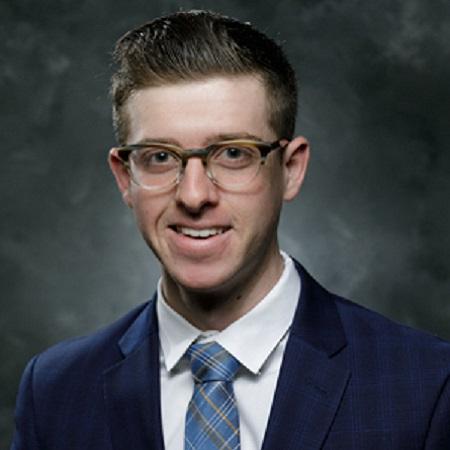

What made you choose to participate in the FJHP?
I decided to participate in FJHP to both hone my writing skills and experience the daily activities in a federal courthouse. Throughout my first two years of law school, I read a countless number of cases, but I had not given much thought to how those cases were written. I wanted to see how that was done, see the meticulous work that goes in to perfecting each decision both on a grammatical and substantive level. The FJHP program was the perfect opportunity. It permitted me to intern a few times a week during the semester in a federal courtroom, enabling me to pursue other forms of work experience during the summer. FJHP offered a unique opportunity to see what federal law clerks and judges do on a daily basis, while still maintaining enough time to fulfill my traditional law school duties.
Your FJHP externship was with Magistrate Judge Lisa Margaret Smith of the Southern District of New York. Tell us about your experience.
I had an amazing experience working with Magistrate Judge Smith. I quickly realized that being a clerk involved a lot of learning on the job—learning a new area of law and applying the facts of each case. I am not an expert in any field of law so I found adjusting to each case I received a bit challenging at first. I also began to truly understand the importance of clear and concise writing in pleadings and briefs submitted to the court. Well-written pleadings and briefs made learning the law and facts much more manageable. Without well-written legal documents, the job of the clerks and the judge is significantly more difficult. I began to understand that the lawyers on any specific case will most likely be the experts on the facts and the law, not the judge or the clerks.
Being given the opportunity to draft a decision was the best part of the externship. I was tasked with drafting a decision for a Social Security appeals case, an area of law which I did not know existed until I received the case. The drafting took a significant amount of time, but both my research and writing skills increasing significantly just from externship. In addition, I received excellent feedback and advice from the law clerks in chambers, both about my work, and more generally about law school and post-graduate opportunities. In addition to the substantive assignments, working in a federal courthouse and seeing what goes on day to day was an invaluable experience.
This fall, you will be a law clerk for the Nuclear Regulatory Commission on the Atomic Safety and Licensing Board Panel. What does that entail?
The Panel hears administrative cases involving issues between nuclear reactor operators, environmentalists, and regulators at NRC. The cases will be quite unique, and instead of working for one specific judge, I will be assigned a certain case with three judges. On each case, there will be one judge with a legal background, and two judges with technical backgrounds. The technical judges specialize in some aspect of nuclear energy and come from various backgrounds such as engineers, physicists, and chemists.
FJHP played a huge role both in spurring my interest and improving my writing skills to get the job. I really enjoyed being in the courthouse, seeing the daily activities of the courtroom, and being privy to very interesting cases. However, as a general law clerk, the areas of law in which you work on are constantly changing and there is not really any way to specialize as a clerk. I knew, even before law school, that I wanted to pursue environmental law. Once I saw the job posting for the clerkship at NRC, I realized it was the perfect fit. It combined all the aspects I loved about FJHP—being in a courtroom, drafting decisions, legal research and writing—with my reason for coming to law school, environmental law.
